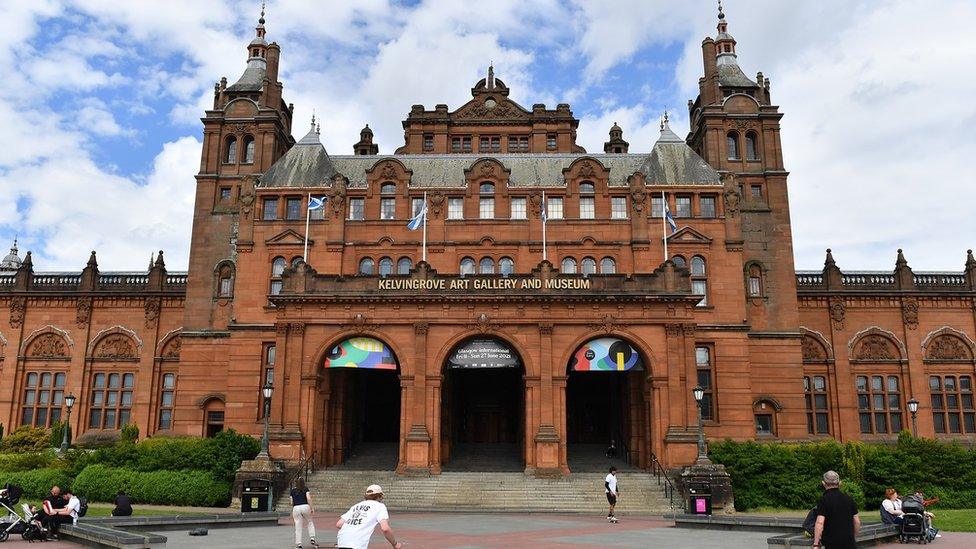COP26: Rail union outlines final position to avert strike
- Published
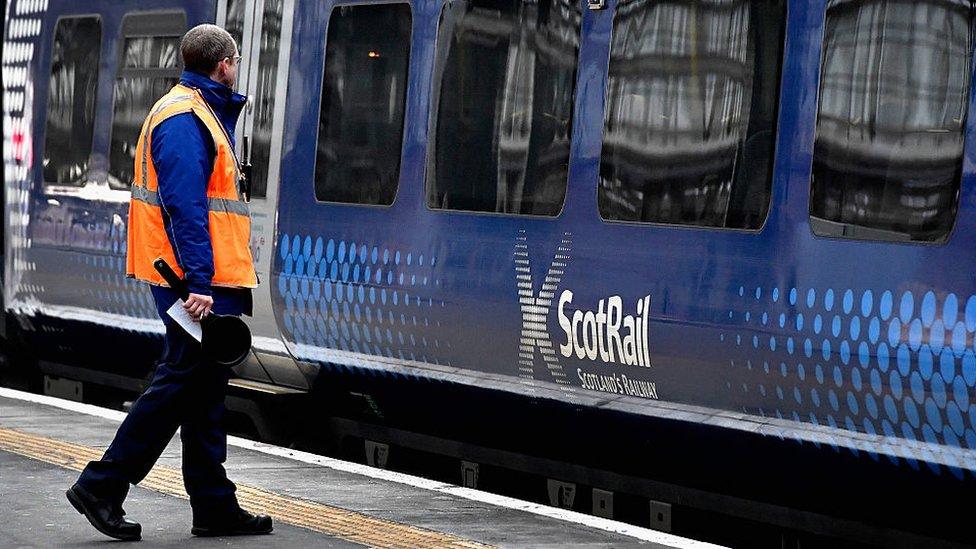
The RMT union has outlined its "final position" on solving a pay dispute which threatens strike action during the COP26 summit in Glasgow.
In a letter to ScotRail, the union's general secretary Michael Lynch listed three demands.
The train operator acknowledged the RMT proposal and said it would give it "due consideration".
The union had until 17:00 on Wednesday to accept the same deal which had been agreed by three other unions.
ScotRail said that just before that deadline, the RMT submitted its proposal.
It is asking for its members - who are mainly conductors and ticket examiners - to be given;
a one year 2.5% pay increase backdated to the 1st of April 2021,
a COP26 payment for all ScotRail staff,
and further pay and condition talks in April next year.
Opposition politicians have been calling for ministers to do more in a bid to avert what Scottish Conservative leader Douglas Ross warned could be "absolute chaos".
ScotRail said the deadline was necessary to finalise its contingency plans, which would see suitably trained supervisors and managers replace striking staff.
The operator said its focus would be on connecting Glasgow and Edinburgh and providing key routes through the host city.
But it would not be drawn on the frequency of services or their period of operation.
Three other unions representing rail workers - Unite, Aslef and TSSA - have accepted a pay deal which is worth 4.7% over two years and includes a £300 bonus for working during the summit.
But the RMT wanted a one-year deal worth 4.9% which was not linked to efficiency savings.
ScotRail operations director David Simpson defended the current offer, especially as passenger numbers have halved due to Covid.
Mr Simpson added that he could not understand why Mr Hogg had not put the deal to his members.
Road closures
On the impact of a strike as the eyes of the world are on Glasgow, he told BBC Reporting Scotland: "I think everybody wants to make sure COP is successful and rail to play its part in that but we can't just throw money at that without consequences. There is a very strong offer on the table."
He added that he hoped the strike could be resolved but on the basis of the RMT's position it was very wise and prudent to make contingency plans.
Up to 30,000 delegates are set to descend on Glasgow for the UN climate summit which runs from Sunday to 14 November.
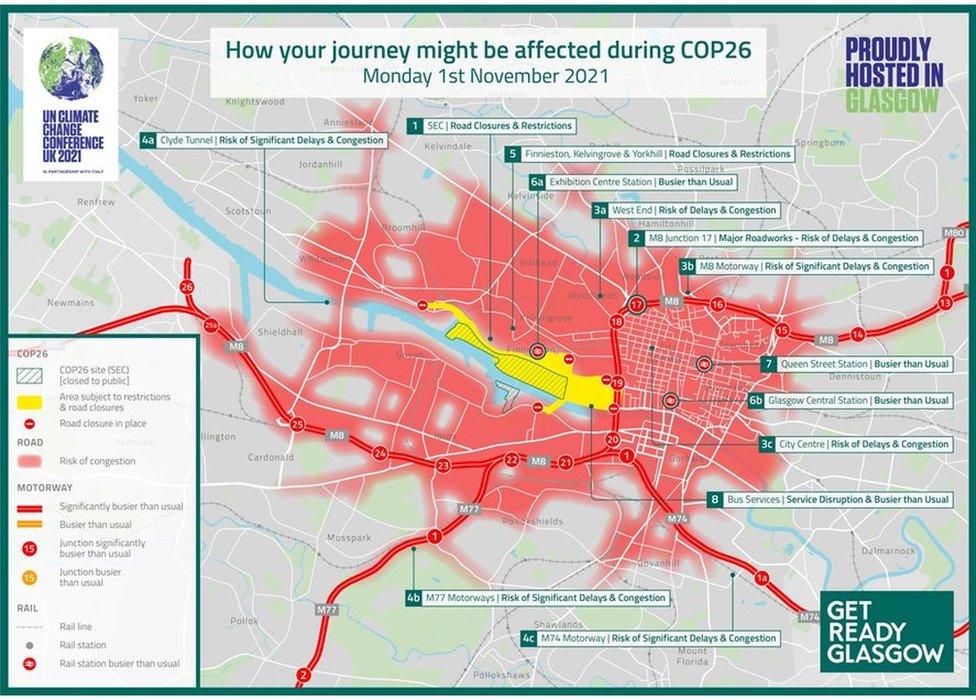
At the same time, the sheer scale of the road closures around the Scottish Event Campus (SEC) will put additional pressure on the rail network for those who need access to the city for work and leisure.
On Tuesday, Transport Minister Graeme Dey accused the RMT of moving the goalposts during negotiations.
And he said there were contingency plans to keep some train services running during the UN climate change summit.
'We have been stonewalled'
In response, RMT Scotland organiser Mick Hogg said: "The goalposts were never there to be moved in the first place - we have been stonewalled for the last 18 months."
Mr Hogg said while there had been movement over a separate issue of rest day working, there had been no progress on pay and proposed efficiency savings.
Rail services in Scotland have been crippled for months by strike action due to a separate dispute, with few trains running on Sundays.
The RMT is threatening strike action from 1 November, for the duration of the summit.
Another dispute could see thousands of council workers across Scotland including refuse, recycling, maintenance and school catering and janitorial staff taking strike action during the second week of the climate talks.
Related topics
- Published26 October 2021
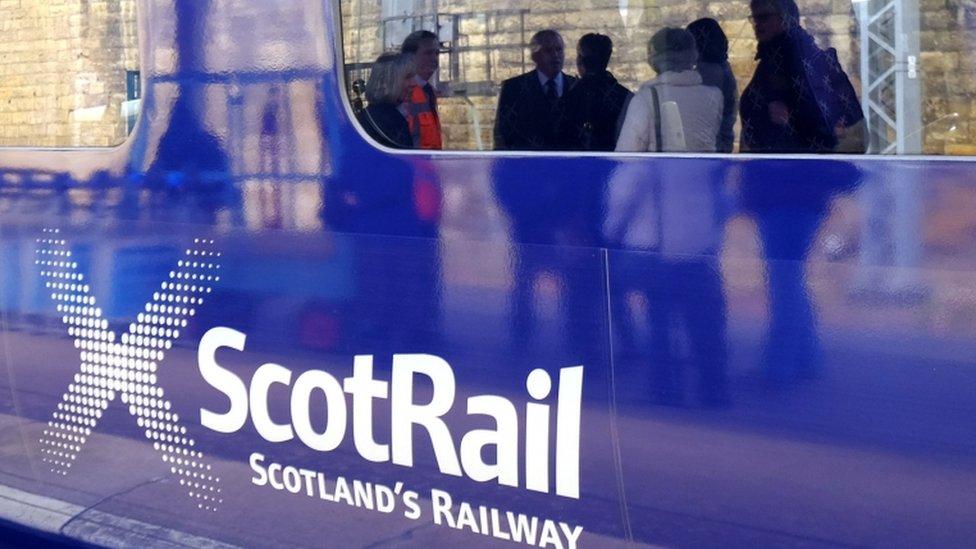
- Published25 October 2021
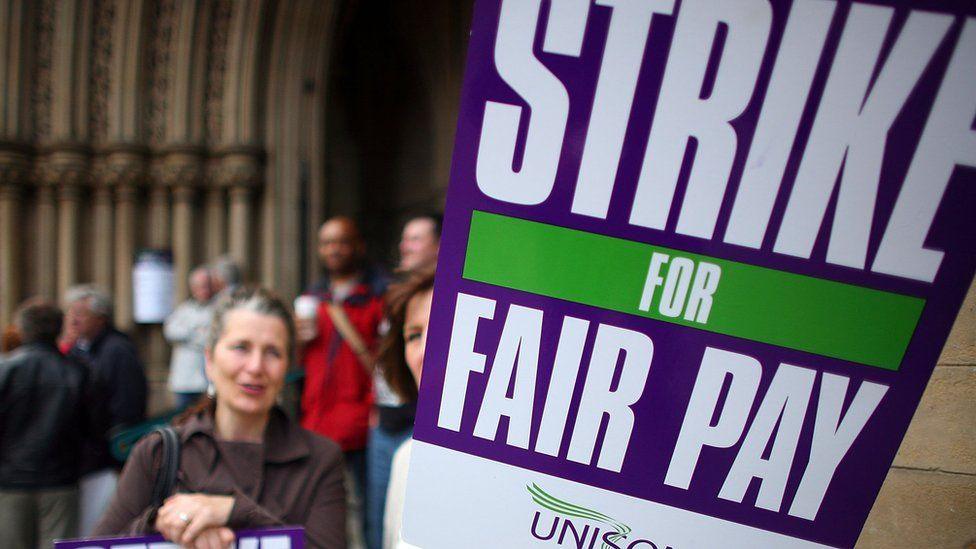
- Published25 October 2021
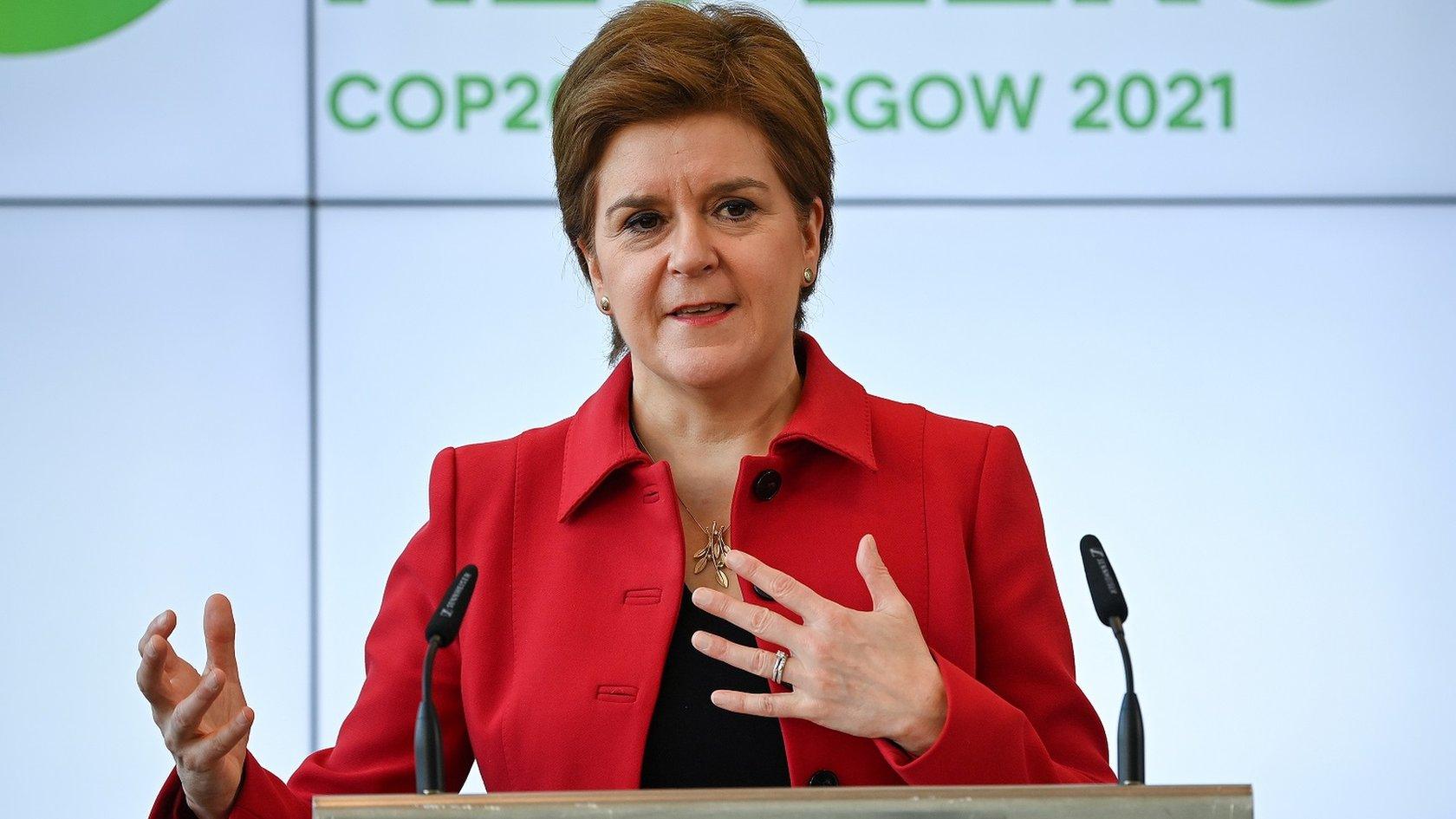
- Published28 October 2021
